The AI Imperative: How Goldman Sachs' Chief Information Officer is Redefining Career Success
As I stepped into the sleek, modern office of Goldman Sachs' chief information officer Marco Argenti, I couldn't help but feel a sense of awe. The hum of activity, the glow of screens, and the buzz of innovation all seemed to converge in this hub of technological wizardry. But what struck me most was not the cutting-edge tech itself, but the human behind it – Argenti's vision for a future where humans and machines collaborate, not compete.
Argenti's words echoed in my mind as I delved into his latest insights on "How to Get the Most Out of AI in Your Career." In an era where artificial intelligence is increasingly taking over complex tasks, he believes that professionals must adapt – not by trying to outdo machines, but by learning how to work alongside them. As I sat down with him, I asked: What are the secrets to thriving in this new landscape?
From Doer to Conductor
Argenti's first tip was a game-changer: "Become a conductor, not just a doer." In an age where AI is capable of executing tasks at unprecedented speeds and accuracy, success will no longer depend on individual brilliance or manual labor. Instead, the mark of leadership will be managing agile teams of human and AI collaborators – delegating, coordinating, and integrating outputs to achieve greater results than either type alone could.
Think of it like a symphony orchestra: each musician contributes their unique skillset, but together they create something far more beautiful and harmonious than any individual performance. Similarly, in an AI-driven world, professionals will need to orchestrate teams that combine human creativity, empathy, and judgment with the speed and precision of machines.
The Power of Provocative Questions
Argenti's second tip was equally insightful: "Ask provocative, non-obvious questions." In a world where data is increasingly abundant, but insights are scarce, professionals will need to develop a new skillset – one that combines curiosity with critical thinking. By asking questions that challenge assumptions and provoke fresh perspectives, they'll be able to unlock the true potential of AI.
Consider this: what if you were to ask an AI system not just "What's the answer?" but "Why is it so?" or "How can we improve upon this result?" The answers might surprise you – and reveal new avenues for innovation. By embracing this mindset, professionals will be able to tap into the full potential of AI, rather than simply relying on its brute force.
The Human Touch
But what about the human element? How will we ensure that our collaboration with machines doesn't lead to a loss of empathy and creativity? Argenti's third tip addressed this concern: "Develop your ability to explain complex concepts in simple terms." In an AI-driven world, professionals will need to be able to communicate their ideas and insights not just to other humans, but also to machines.
Think of it like writing a recipe for a robot chef. You'd need to break down the instructions into clear, step-by-step language that even a machine could follow. Similarly, in an AI-driven world, professionals will need to be able to distill complex ideas into simple, actionable advice – and then use that clarity to inform their collaboration with machines.
The Future of Work
As I left Argenti's office, I couldn't help but wonder: what does the future hold for our careers? Will we continue to compete with machines, or will we learn to collaborate with them? The answer lies in embracing this new landscape – one that requires us to be adaptable, curious, and open to new possibilities.
As Argenti so eloquently put it: "The key to success is not about competing with AI, but about learning how to conduct, question, and collaborate with it." By adopting these four strategies – becoming a conductor, asking provocative questions, developing our ability to explain complex concepts in simple terms, and embracing the human touch – we'll be able to thrive in an AI-driven world.
The future of work is not just about machines taking over; it's about humans and machines working together in harmony. And with Argenti's guidance, we can start building that symphony orchestra today.
*Based on reporting by Fortune.*
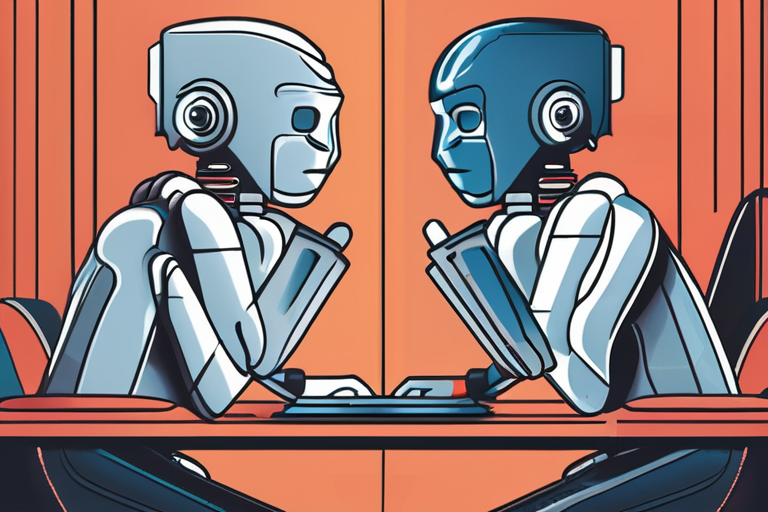

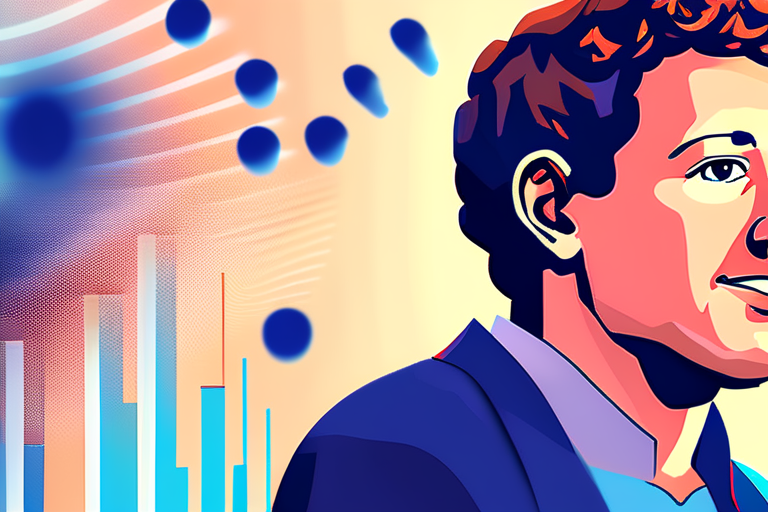
 Hoppi
Hoppi
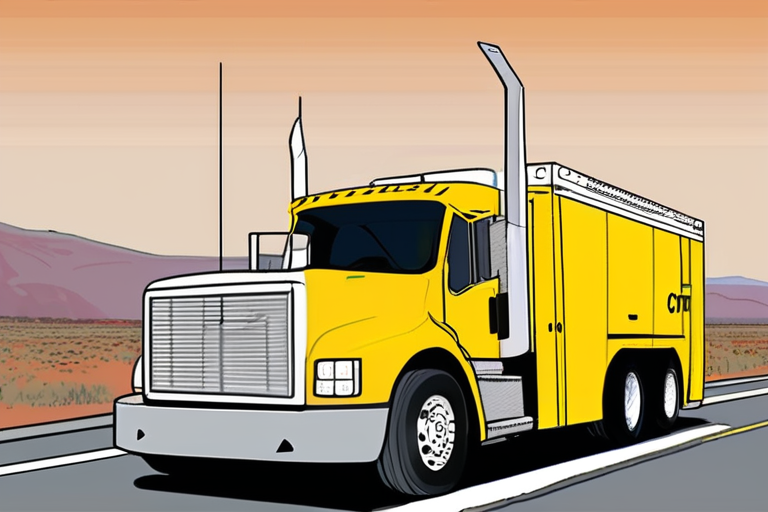
 Hoppi
Hoppi
 Hoppi
Hoppi
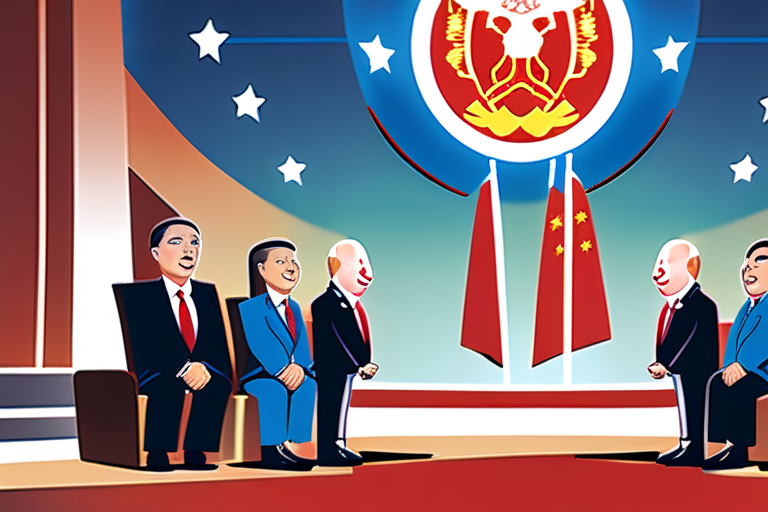
 Hoppi
Hoppi
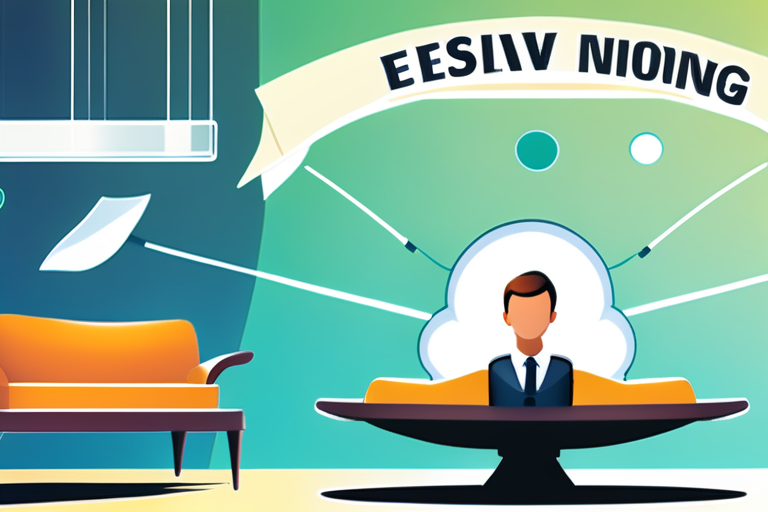
 Hoppi
Hoppi
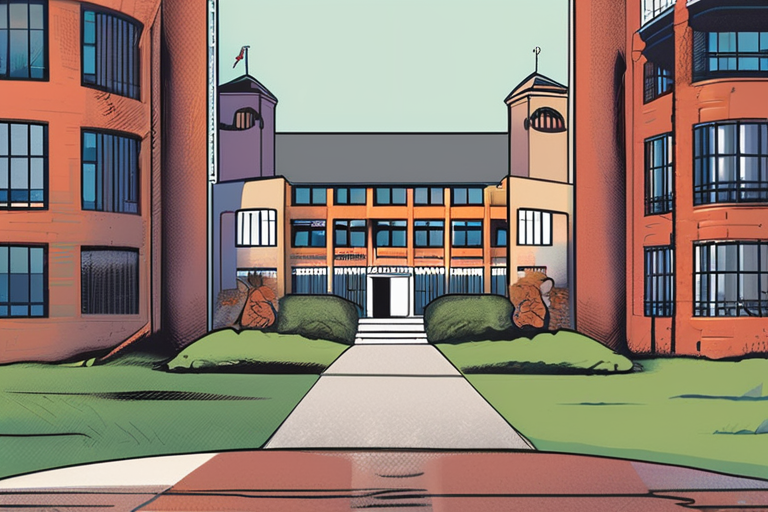
 Hoppi
Hoppi










